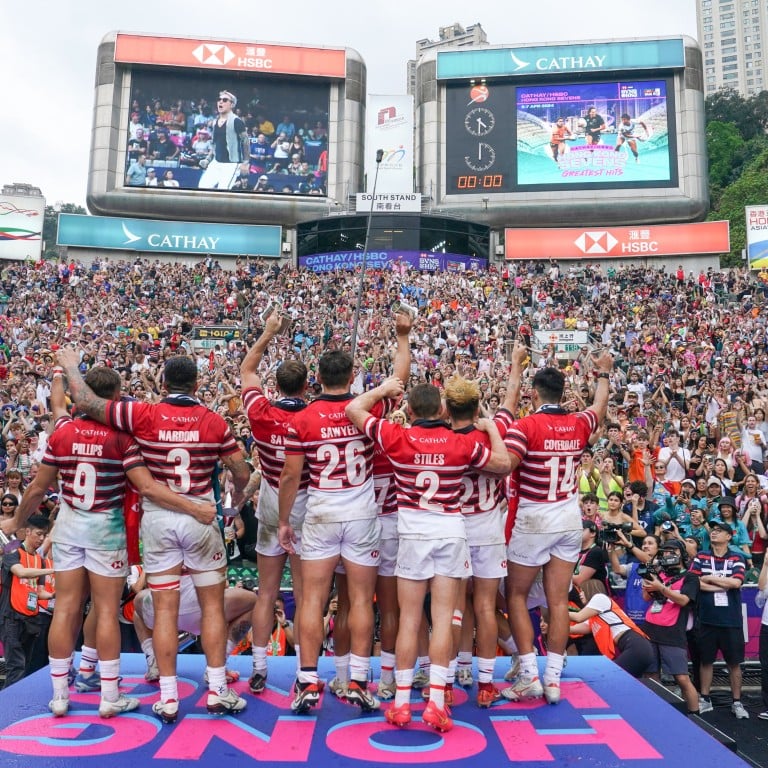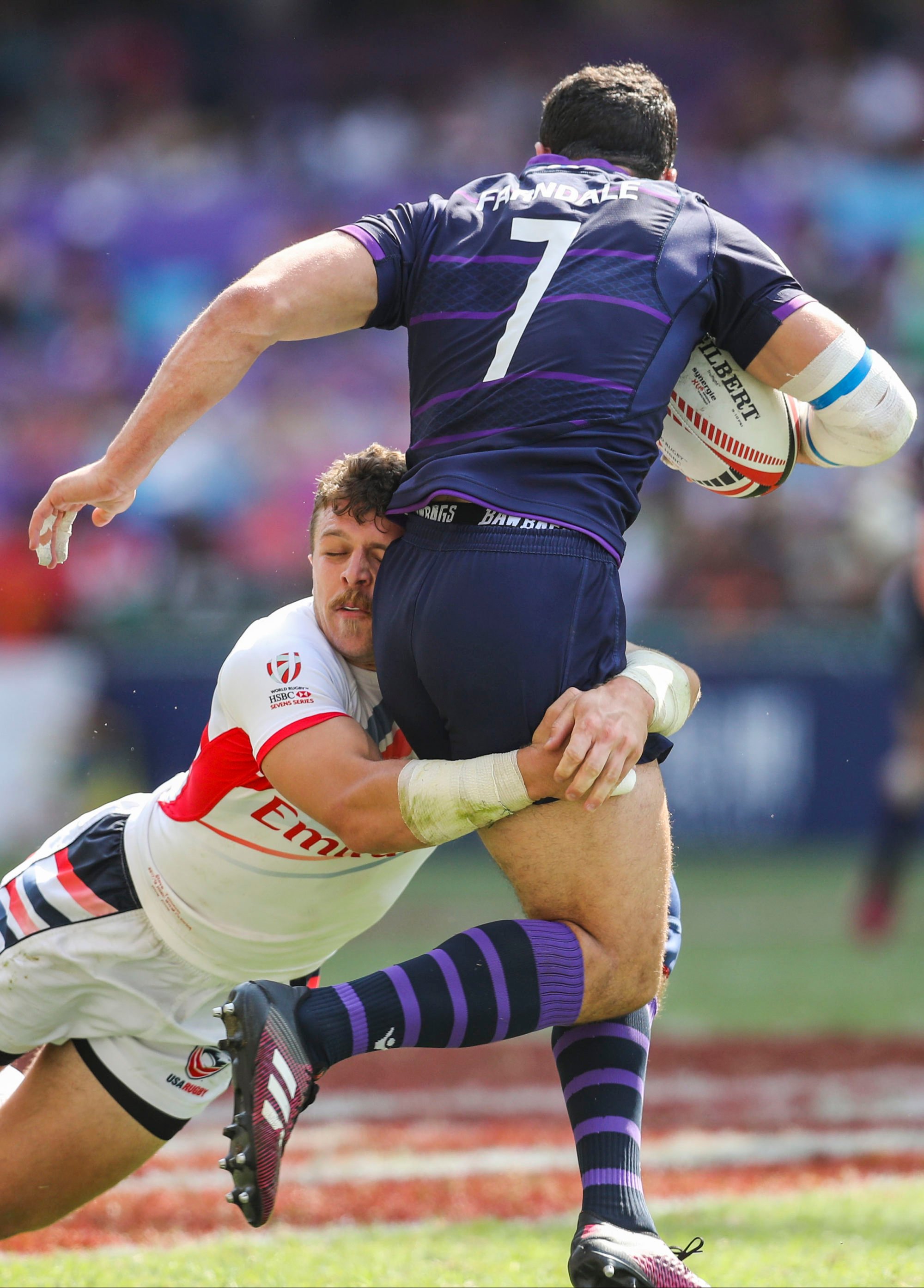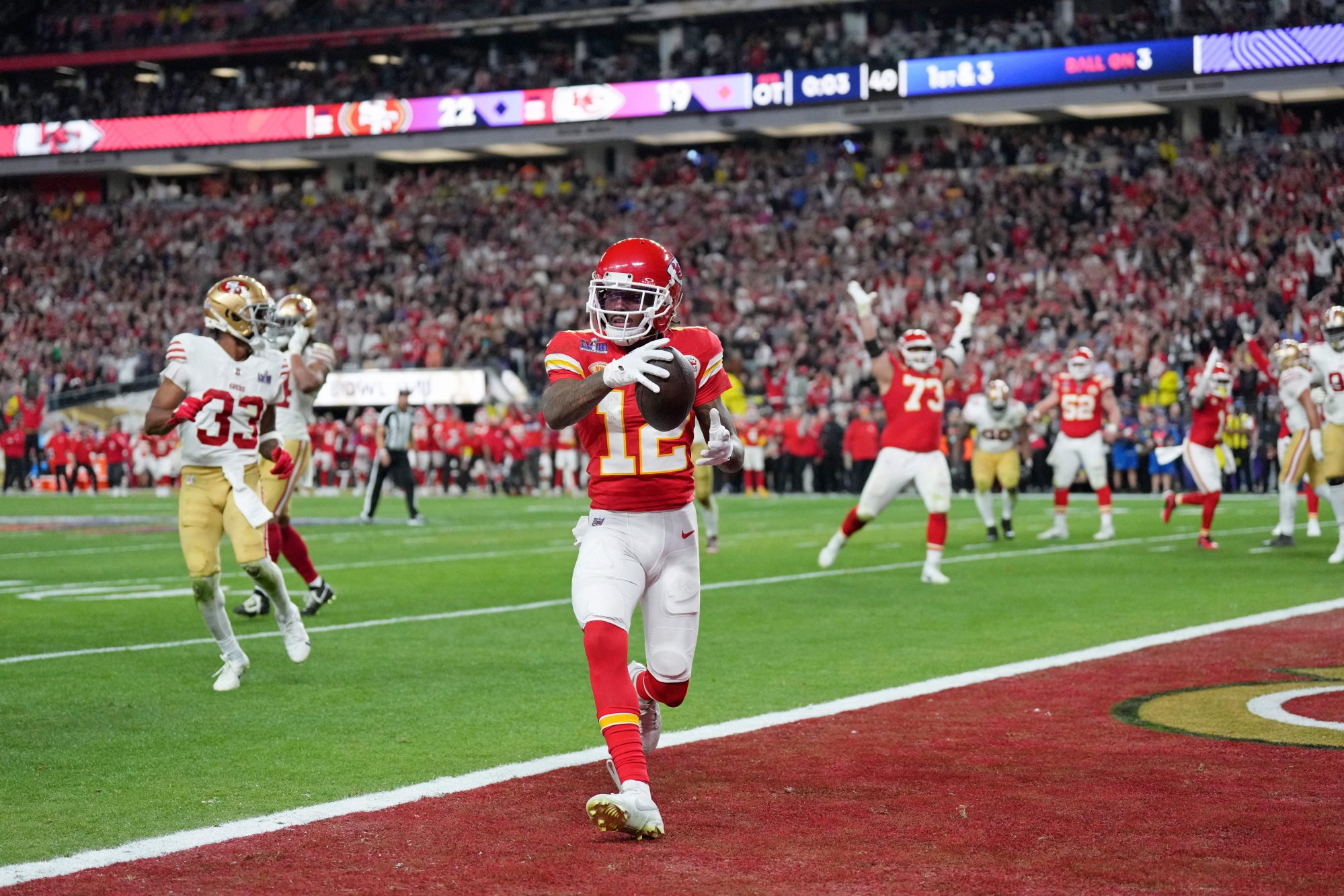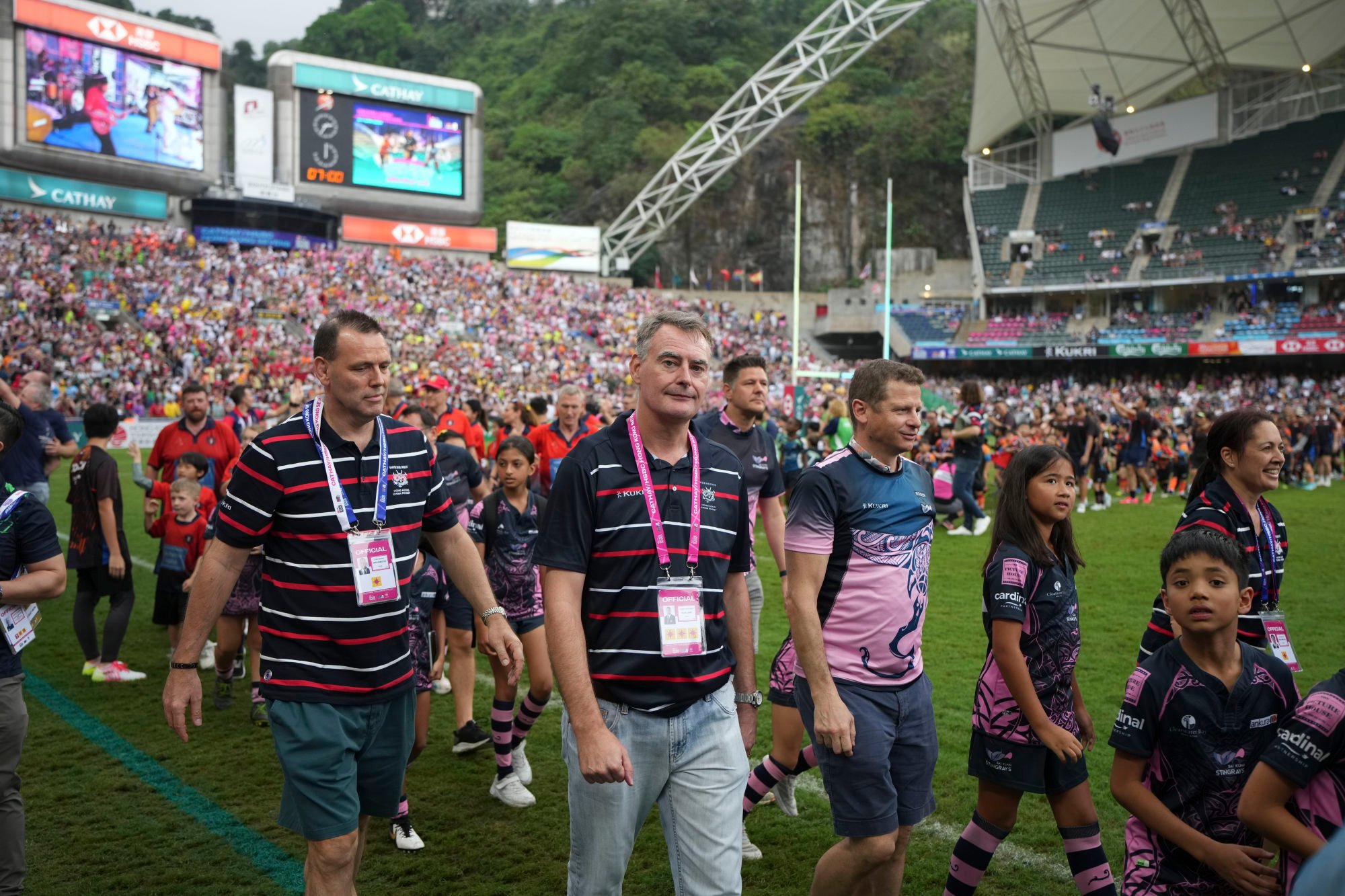
With global sport emitting as much as Poland or Spain, major events including Sevens must ‘double down’ on sustainability
- The travel needed to get to such events generate 90 per cent of the emissions, says Great Britain sevens player Jamie Farndale
- Also guilty are older venues that do not use renewable energy, and the tonnes of food, packaging and plastics involved
International sports events need to double down on their sustainability efforts to reduce the “huge negative environmental impact” they generate, according to Great Britain rugby sevens player Jamie Farndale.
Speaking at the Hong Kong Sport & Sustainability Summit ahead of last weekend’s Cathay/HSBC Hong Kong Sevens, Farndale said that, according to his research, professional sport emits 350 million tonnes of greenhouse gases – the same amount as countries such as Poland or Spain.
Of the 40,000 sell-out crowd at the weekend’s tournament in Hong Kong, 42 per cent of spectators came from overseas, and Farndale said 90 per cent of emissions were generated by people travelling to such events.
“The way that things are being approached at the moment, it’s about making 5 per cent reductions, 10 per cent reductions [in one’s carbon footprint],” said Farndale, who is a sustainability ambassador for Scottish Rugby and is studying for a Master’s degree in the subject at Cambridge University.

“My point isn’t that that is not the right approach; if anything, we need to double down on that.”
International travel is not the only issue, as older venues such as Hong Kong Stadium do not use renewable energy, and tonnes of food, packaging and single-use plastics get thrown away after events.
“The Super Bowl had about 60 tonnes of waste, and that is just one event,” Farndale said.
Farndale added that sports is a highly influential field and if it were more sustainable, it could push more people towards actively reducing their carbon footprint.
“People like Marcus Rashford – what he did for free school meals shows that when sports stars speak, people listen.”
But how easy is it to implement?

This year’s Hong Kong Sevens used reusable plastic cups that were cleaned, sanitised and reused. Some merchandise, including T-shirts, were also made using recycled plastics.
The Sevens team also partnered with Feeding Hong Kong to ensure that unsold food and beverages were distributed to organisations feeding those in poverty.
Hong Kong rugby boss Robbie McRobbie said: “You can go around the tournament today and you can find 101 things that we’re still not doing as well as we would like to, in regards to sustainability – but this is a journey we’re all on.”
The Hong Kong Sevens was a guinea pig for the Environmental Protection Department’s Green Event Guidebook, which outlines how large events in the city can reduce waste.
McRobbie said that one of the major issues holding back mega events from being more environmentally friendly was that it was hard to get everyone involved singing from the same hymn sheet.
“Vendors, for example, have multi-year contracts in stadiums and there are not a lot of events and there are fewer events that make money,” McRobbie said. “So, for them, they have to maximise the money they make and keep costs down.
“And stadiums also have restrictions; we cannot use reusable cups in the South Stand because there is a risk people will throw them,” he said.
A reporter from the Post observed that beer sold at the Sevens (except for the South Stand) over the weekend was put into reusable cups, but a large number of drinks and some food still used single-use plastics.

McRobbie also highlighted the issues surrounding Hong Kong Stadium and how modern stadiums use greywater, LED lights and renewable energy sources.
Next year, the Hong Kong Sevens will take place in the newly built Kai Tak Sports Park, which will have some renewable energy sources in the main stadium.
“The answer [to further reducing mega event’s carbon footprint] is legislation, frankly speaking,” McRobbie said. “There are so many reasons we can find not to do it that I think it needs the government to say ‘this is what you will do’.”

